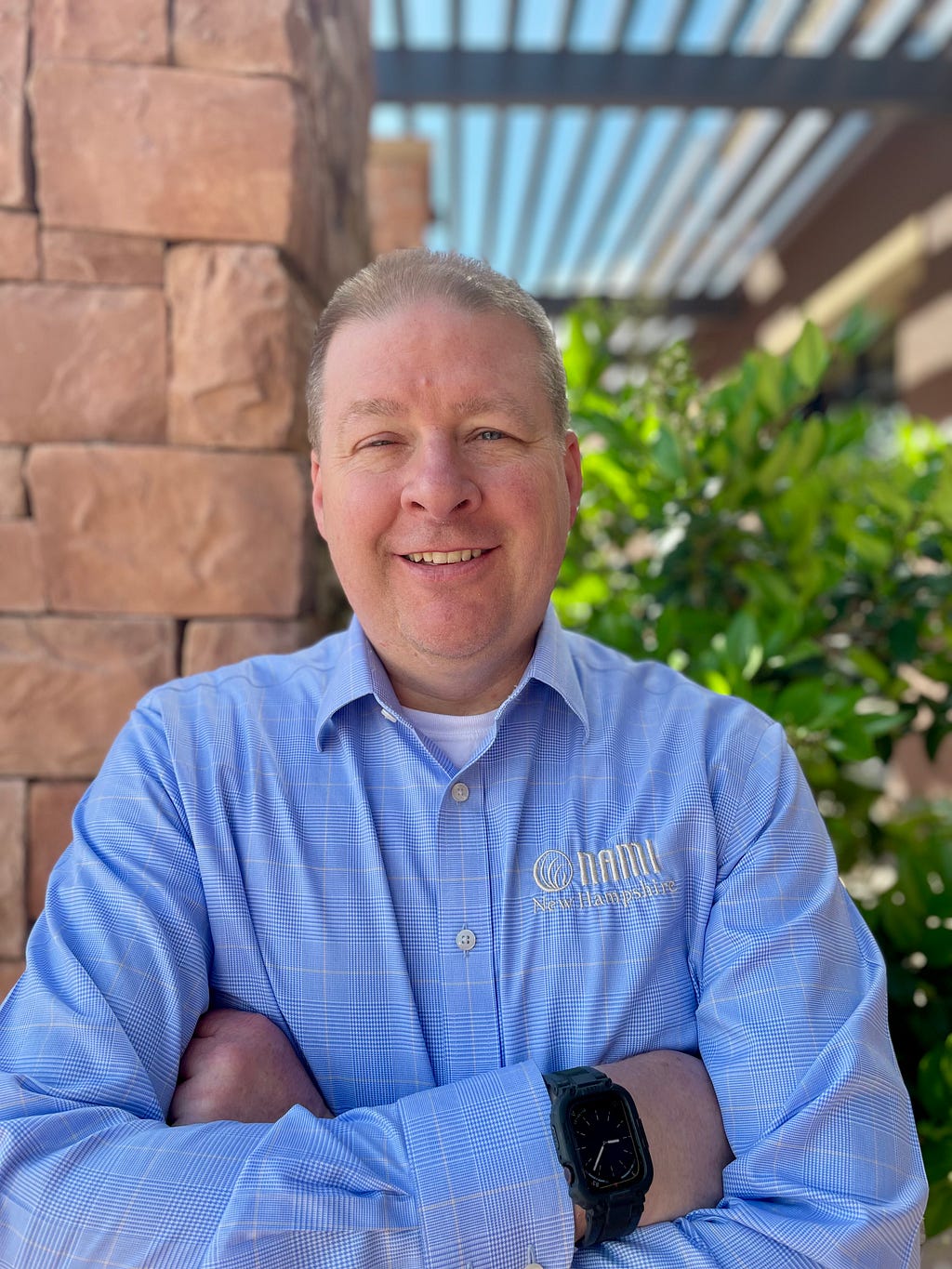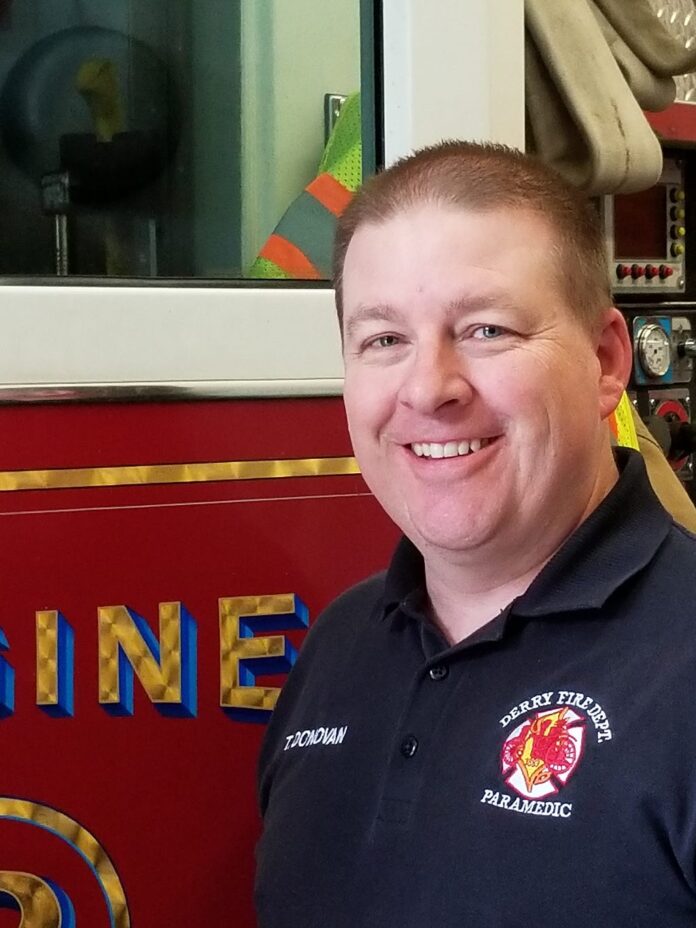Unstoppable: How Todd Donovan Has Redefined Success While Navigating Society with Major Depressive Disorder
An interview with Kelly Reeves
Recovery can bring unexpected joys. Depression often robs people of joy, but recovery can open the door to new experiences and passions. For me, this meant discovering the vibrant colors of New England’s fall leaves, finding joy in music for the first time, and reconnecting with my family on a deeper level. These are things I never imagined could bring me happiness while I was depressed.
As a part of our “Unstoppable” series, we had the pleasure of interviewing Todd Donovan.
Todd Donovan is a passionate mental health advocate who has transformed his battle with major depressive disorder (MDD) into a mission to support others. After years of struggling with depression, multiple hospitalizations, and ineffective treatments, he found hope and lasting relief through transcranial magnetic stimulation (TMS). Now, Todd shares his story with thousands, inspiring others to seek help and emphasizing the importance of understanding mental illness. His journey has also led him to rediscover life’s joys, to further his education, to start his own business and to appreciate the beauty of the world around him.
Thank you so much for doing this with us! It is really an honor. Our readers would love to get to know you a bit better. Can you share your “backstory” with us?
My journey with depression began at a very young age. By the time I was eight, I was already grappling with overwhelming feelings of anger and despair, leading to my first suicide attempt. Throughout my adolescence and into early adulthood, I continued to face ongoing challenges with my mental health, experiencing multiple suicide attempts and hospitalizations. Despite trying numerous medications and treatments, nothing seemed to provide lasting relief.
It wasn’t until about ten years ago that I found hope through transcranial magnetic stimulation (TMS) with NeuroStar Advanced Therapy. For the first time in decades, I began to experience life without the heavy burden of depression. This breakthrough allowed me to see that my struggles weren’t due to personal failings, but rather it was a treatable medical condition. My experience has inspired me to help others facing similar challenges, and I’ve dedicated myself to sharing my story and supporting those who are in need.
Do you feel comfortable sharing with us the story and experience with depression?
When I was just eight years old, I encountered the harsh realities of depression for the first time, leading me to attempt suicide at such a young age. As I grew older, between the ages of eight and fourteen, these feelings became more intense and real. For years, I kept my suicide attempts and deepening depression a secret. At eighteen, after another suicide attempt, I was admitted to a hospital where I was finally diagnosed with major depressive disorder (MDD).
This marked the beginning of a long and challenging journey to manage my depression. Over the years, I was hospitalized six times and tried eleven different medications, but none of them provided lasting relief. It felt like nothing was working.
Ten years ago, my wife discovered an ad for NeuroStar TMS and put it on the refrigerator. I was skeptical at first and ignored it for months, but eventually decided to give it a chance. I was treated with NeuroStar Advanced Therapy, and after 23 sessions, I experienced something incredible — I woke up one morning without suicidal thoughts for the first time in years. It was a profound moment of relief, and I realized I was in remission.
Truly, everything changed in my life and perception of it. I was finally seeing the beautiful New England foliage around me. Music went from noise to something that gave me joy. I am fully engaged with my life and the people around me, which allowed me to start this journey as an advocate as well.
What mental shift did you make to not let that “stop you”?
Despite my own depression, I was always motivated to help others. For most of my professional career, I served my community as a paramedic and recently retired as a Lieutenant in the Fire Department. In those roles, I was also an instructor, teaching other first responders advanced cardiac life support, basic life support and firefighting skills. I also helped a crew member of my team write his first article, which was published in a national firefighting trade journal. It changed his life, and now he’s a regular contributor. After my successful NeuroStar treatment, that was when I was finally able to not only help others but help myself.
Can you tell our readers about the accomplishments you have been able to make?
Despite living with chronic depression, I’ve managed to achieve several things that I’m deeply proud of. After my TMS treatment, I returned to school and earned both my bachelor’s and master’s degrees. One of my most memorable milestones was delivering a talk at the University of New Hampshire to a group of 70 students. That experience marked the beginning of a journey where I started speaking regularly about my mental health struggles. As I continued sharing my story, I began to connect with people — loved ones, colleagues, and strangers — in ways that weren’t possible for me when I was in the depths of my depression.
This incredible journey also led me to serve on the National Alliance on Mental Illness — New Hampshire’s (NAMI NH) board, first as vice president and then as president. At the same time, my passion for teaching has remained a central part of my life. These experiences have set me on a path toward more leadership roles, and I’m excited about where I’m headed next.
What advice would you give to other people who are suffering with depression?
My advice to anyone dealing with a mental illness is to know that it is not your fault. It’s not a moral failing. So many people think it is, asking themselves, “What could I have done differently?” But you wouldn’t ask that if you developed diabetes, right? Yet, with depression or other mental health challenges, we often feel like we should have done something to prevent it, even when there’s no clear reason why we’re struggling.
I had a career, a supportive family, and everything I thought I needed to be happy, but I was still depressed. It’s important to understand that it’s not about what you did or didn’t do. It’s not your fault.
There is no one-size-fits-all treatment, so it’s important to know your treatment options so you can find one that works for you. For me, it was NeuroStar, an amazing non-drug option, and I am living proof that it works. So don’t give up. Seek help because it can make all the difference.
None of us can achieve success without some help along the way. Is there a particular person who you are grateful towards who helped get you to where you are?
I think about my psychologist Susan Borchert. She kept me alive for over a dozen years, sometimes seeing me twice a week. Professionals like her need to see people like me, who have experienced remission.
How have you used your success to bring goodness to the world?
I’ve used my success to bring goodness to the world by sharing my mental health journey, educating people about TMS, and helping others along the way. Whether that is within my own family (I have an amazing wife and four children), speaking to young people at universities, serving in leadership roles at NAMI New Hampshire, or my career (first as a paramedic with the Fire Department and now running my own business) — I am a helper and proud to bring positivity and hope to others.

Can you share “5 things I wish people understood or knew about people with depression” and why.
- Depression isn’t a moral failing. Many people, including those who suffer from depression, often believe that their condition is due to a personal weakness or failure. But the reality is that depression is a medical condition, not a reflection of your character or effort. I struggled with this belief for years, thinking I had done something wrong to deserve the pain I was experiencing. It wasn’t until I received effective treatment that I realized it wasn’t my fault — I didn’t want to die; I just wanted the pain to stop.
- Mental illness doesn’t always have a clear cause. People often assume that depression must stem from a traumatic event or significant life struggle, but that isn’t always the case. I was never abused, didn’t experience severe bullying, and had a supportive family and a fulfilling career. Yet, I still suffered from deep depression for most of my life. Sometimes, mental illness doesn’t have a straightforward reason.
- Treatment options vary, and it can take time to find what works. There’s no one-size-fits-all solution for depression. I tried eleven different medications and was hospitalized six times before finding relief through TMS. For some, medications work, while for others, like me, non-drug options like TMS can be life-changing. It’s important to explore all available treatments and not give up hope.
- Recovery can bring unexpected joys. Depression often robs people of joy, but recovery can open the door to new experiences and passions. For me, this meant discovering the vibrant colors of New England’s fall leaves, finding joy in music for the first time, and reconnecting with my family on a deeper level. These are things I never imagined could bring me happiness while I was depressed.
- Sharing your story can be healing — for you and others. Being open about your mental health struggles can have a profound impact. I’ve shared my story with over 26,000 people, most of them first responders, and in doing so, I’ve not only helped others but also healed myself. Every time I speak, it’s a reminder that my depression no longer defines me, and it reinforces the importance of connection and support in the journey toward recovery.
Can you please give us your favorite “Life Lesson Quote”?
My wife and I have adopted the motto of “no regrets” as a reminder not to dwell on lost time but to focus on what we can still achieve. I also tell people that “treatment works, I’m living proof.”
We are very blessed that some of the biggest names in Business, VC funding, Sports, and Entertainment read this column. Is there a person in the world, or in the US whom you would love to have a private breakfast or lunch with, and why? He or she might just see this.
I would genuinely enjoy a lunch meeting with Simon Sinek. His idea, “Know Your Why,” resonated with many people. This idea propelled him to great heights, and I hope he has learned his own “why.” His idea and this thought process have helped me with my why professionally and personally. After receiving a treatment that works, my “why” is exciting, fresh, and relevant.
Thank you so much for the time you spent with this interview. We wish you continued success and good health!
Unstoppable: How Todd Donovan Has Redefined Success While Navigating Society with Major Depressive… was originally published in Authority Magazine on Medium, where people are continuing the conversation by highlighting and responding to this story.


